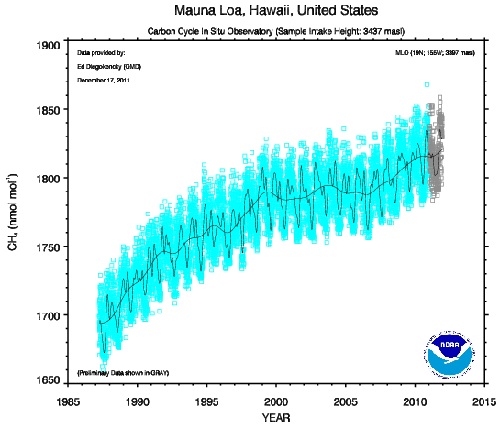New research special - methane papers 2010-2011
Posted on 17 July 2012 by Ari Jokimäki
New research from last week series started in Skeptical Science at the beginning of 2012. Before this the series had been running for a year and a half in AGW Observer blog. Now, as new research series is having a summer break, we take a peek back to 2010 and 2011 papers in the series. We have four different posts that all contain all the papers included in the new research series during 2010 and 2011 on certain subject.
Subject of the week is methane. Several issues relating to methane are currently interesting and important for the future. Has atmospheric methane concentration started to increase after plateauing for a decade? What are the most important methane emission sources with warming climate? Are methane hydrates something we should worry about? Below you will find all methane papers that were included in the new research series during 2010 and 2011.

Recent atmospheric methane trends and their causes
Source attribution of the changes in atmospheric methane for 2006–2008 - Bousquet et al. (2011)
Methane hydrates
Other issues
A high arctic soil ecosystem resists long-term environmental manipulations - Lamb et al. (2011)
Regional methane emission from West Siberia mire landscapes - Glagolev et al. (2011)
Bubbles trapped in arctic lake ice: Potential implications for methane emissions - Wik et al. (2011)
Large methane releases lead to strong aerosol forcing and reduced cloudiness - Kurtén et al. (2011)
An agronomic assessment of greenhouse gas emissions from major cereal crops - Linquist et al. (2011)































 Arguments
Arguments























 0
0  0
0






Comments